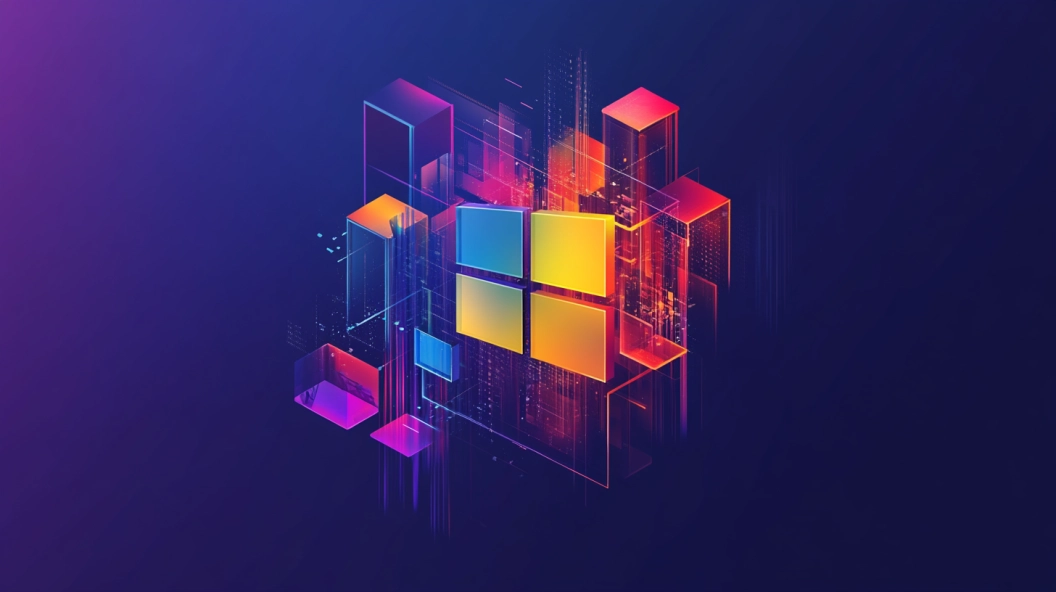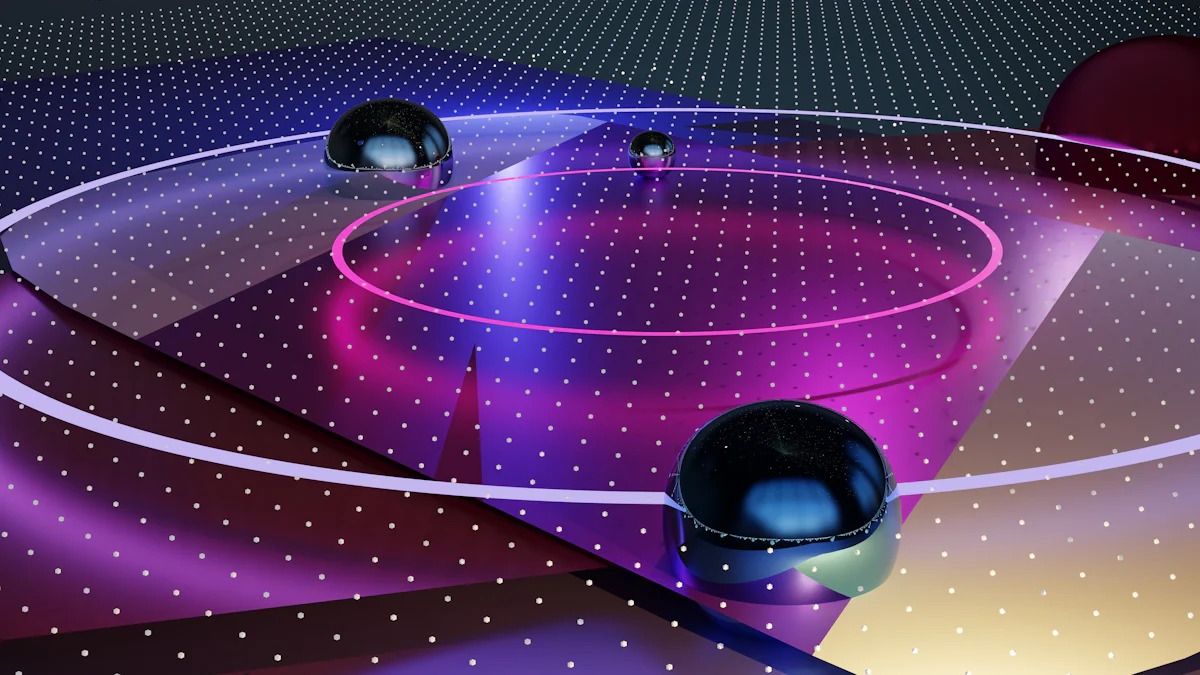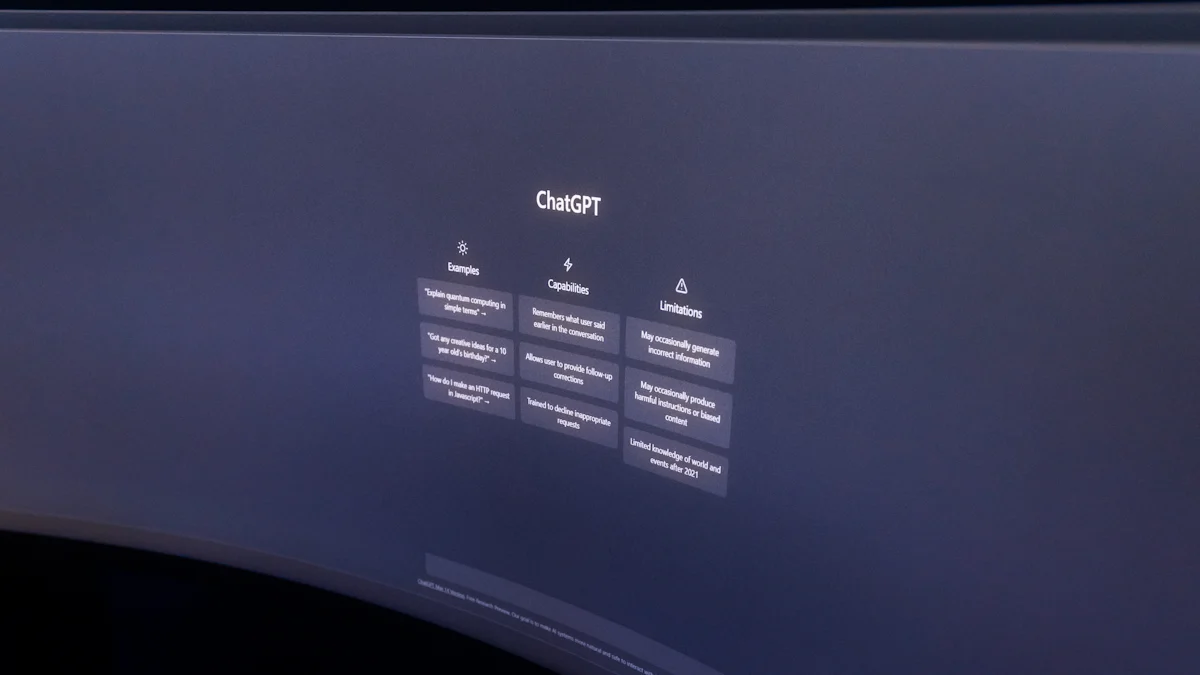How Microsoft is Paving the Way for Quantum Computing

Quantum computing represents a revolutionary leap in technology, promising to solve complex problems beyond the reach of classical computers. You might wonder how this impacts you. Imagine faster drug discovery or more secure communications. Microsoft is at the forefront of this transformation. By investing heavily in research and collaborating with global partners, Microsoft is paving the way for practical quantum computing. Their Azure Quantum platform integrates cutting-edge technologies, aiming to tackle the most challenging scientific problems. This commitment positions Microsoft as a leader in bringing quantum capabilities to the mainstream.
Understanding Quantum Computing

Basics of Quantum Mechanics
Superposition and Entanglement
In the realm of quantum mechanics, particles behave in ways that defy classical logic. Superposition allows particles to exist in multiple states at once. Imagine flipping a coin. In the quantum world, the coin can be both heads and tails simultaneously until you observe it. This phenomenon enables quantum computers to perform many calculations at once.
Entanglement is another fascinating concept. When particles become entangled, they remain connected regardless of distance. Change the state of one particle, and the other responds instantly. This connection forms the backbone of quantum computing, allowing for rapid information transfer and processing.
Quantum Bits (Qubits)
Quantum bits, or qubits, are the building blocks of quantum computers. Unlike classical bits, which are either 0 or 1, qubits can be both at the same time due to superposition. This duality allows quantum computers to process vast amounts of data simultaneously. Qubits also utilize entanglement, enhancing their computational power and efficiency.
Differences from Classical Computing
Speed and Efficiency
Quantum computers excel in speed and efficiency. They solve problems that would take classical computers years to crack. For example, quantum computers can factor large numbers quickly, a task that classical computers struggle with. This speed stems from their ability to perform multiple calculations at once, thanks to superposition and entanglement.
Potential Applications
The potential applications of quantum computing are vast and transformative. You could see advancements in fields like:
Drug Discovery: Quantum computers can simulate molecular interactions, speeding up the development of new medications.
Cryptography: They can break traditional encryption methods, prompting the need for quantum-resistant algorithms.
Artificial Intelligence: Quantum computing enhances machine learning models, making them faster and more accurate.
By understanding these principles, you gain insight into how quantum computing could revolutionize technology and industry.
Microsoft's Quantum Computing Strategy
Investment in Research and Development
Microsoft invests heavily in quantum research and development. You see this commitment through their collaborations with universities and partnerships with tech companies.
Collaborations with Universities
Microsoft partners with leading academic institutions to push the boundaries of quantum technology. These collaborations focus on scaling quantum devices and transitioning from theoretical research to practical engineering. By working closely with academia, Microsoft accelerates innovation and nurtures future quantum scientists.
Partnerships with Tech Companies
Microsoft also teams up with tech giants like Quantinuum and Atom Computing. These partnerships integrate quantum computing with other cutting-edge technologies. For example, Microsoft and Quantinuum have achieved breakthroughs in logical qubits, enhancing the reliability and scalability of quantum systems. Such alliances drive the industry forward, paving the way for hybrid classical-quantum supercomputing.
Development of Quantum Software
Microsoft's software development efforts are crucial to their quantum strategy. They provide tools and platforms that empower you to explore quantum computing.
Quantum Development Kit
The Quantum Development Kit offers a comprehensive set of tools for quantum programming. It includes libraries, simulators, and resources to help you develop quantum applications. This kit makes quantum computing accessible, allowing you to experiment and innovate.
Azure Quantum Platform
The Azure Quantum Platform integrates quantum computing with cloud services. It combines logical qubits with AI and high-performance computing to tackle complex scientific challenges. By offering a flexible and scalable platform, Azure Quantum enables industries like pharmaceuticals and finance to leverage quantum technology for innovative solutions.
Through strategic investments and cutting-edge software, Microsoft leads the charge in making quantum computing a reality.
Microsoft Paving the Way with Key Achievements

Breakthroughs in Quantum Algorithms
Microsoft continues to lead in quantum computing by developing groundbreaking algorithms. These advancements promise to revolutionize various fields.
Optimization Algorithms
You can see the impact of Microsoft's work in optimization algorithms. These algorithms solve complex problems more efficiently than classical methods. For instance, they help in logistics by optimizing routes and reducing costs. This efficiency translates into real-world benefits, making processes faster and more cost-effective.
Cryptography Applications
In cryptography, Microsoft's algorithms enhance security. Quantum computers can break traditional encryption, but Microsoft develops quantum-resistant algorithms. These innovations protect sensitive information, ensuring secure communications in a quantum future.
Hardware Innovations
Microsoft's hardware innovations are crucial in advancing quantum computing. They focus on creating reliable and scalable systems.
Topological Qubits
Microsoft pioneers the use of topological qubits. These qubits offer stability and error resistance, essential for practical quantum computing. By using topological qubits, you gain access to more reliable quantum systems, paving the way for real-world applications.
Scalable Quantum Systems
Scalability remains a challenge in quantum computing. Microsoft addresses this by developing scalable quantum systems. They successfully completed an end-to-end chemistry simulation, combining HPC, AI, and logical qubit computation. This achievement demonstrates the potential of quantum computers to tackle complex scientific problems, previously unsolvable by classical computers.
Through these key achievements, Microsoft paves the way for a future where quantum computing becomes an integral part of solving global challenges.
Challenges in Quantum Computing
Technical Challenges
Error Rates and Stability
Quantum computing faces significant technical challenges, primarily due to high error rates and stability issues. You might wonder why errors occur so frequently. Quantum systems are inherently fragile. They are susceptible to decoherence and external noise, which can disrupt calculations. To make quantum computers practical, you need reliable error correction techniques. These methods aim to detect and correct errors caused by quantum decoherence. However, implementing them is complex. It involves joining multiple physical qubits into one logical qubit. This process is crucial for building practical quantum computers.
Scalability Issues
Scalability is another major hurdle in quantum computing. As you scale up quantum computers, maintaining low error rates becomes increasingly difficult. The challenge lies in increasing logical qubit counts and fidelity. You need advancements in both hardware and software to achieve this. Microsoft's approach of using logical qubits to combine multiple physical qubits addresses this issue. By improving logical qubits, you pave the way for more reliable quantum applications. However, achieving scalability while maintaining performance remains a daunting task.
Economic and Ethical Considerations
Cost of Development
The economic aspect of quantum computing cannot be overlooked. Developing quantum technology is expensive. You need substantial investments in research and infrastructure. The cost of building and maintaining quantum systems is high. This financial burden poses a challenge for widespread adoption. Companies like Microsoft invest heavily in quantum research and development. Their efforts aim to reduce costs and make quantum computing accessible to various industries. However, the journey to cost-effective quantum solutions is long and requires continuous innovation.
Ethical Implications
Quantum computing also raises ethical considerations. You might wonder how this technology impacts society. Quantum computers have the potential to break traditional encryption methods. This capability poses a threat to data security and privacy. You need to develop quantum-resistant algorithms to protect sensitive information. Additionally, the power of quantum computing could lead to unintended consequences. It is essential to consider the ethical implications of this technology. Ensuring responsible use and addressing potential risks are crucial for a quantum future.
By understanding these challenges, you gain insight into the complexities of quantum computing. Addressing these issues is vital for realizing the full potential of this transformative technology.
How Microsoft is Addressing Challenges
Error Correction Techniques
Quantum Error Correction Codes
You might wonder how Microsoft tackles the high error rates in quantum computing. They focus on Quantum Error Correction Codes. These codes detect and correct errors in quantum systems. By using multiple physical qubits to form a single logical qubit, Microsoft enhances reliability. This approach ensures that quantum computers perform accurate calculations, even in noisy environments.
Krysta Svore, a Technical Fellow for Advanced Quantum Development at Microsoft, emphasizes the importance of logical qubits:
"It's really critical we have logical qubits to get solutions that are, after all, reliable."
Fault-Tolerant Quantum Computing
Microsoft aims for Fault-Tolerant Quantum Computing. This method allows quantum computers to continue functioning despite errors. By integrating error correction with computation, Microsoft achieves deeper and more complex calculations. This innovation paves the way for practical quantum machines that can solve real-world problems.
Building a Quantum Ecosystem
Community Engagement
Microsoft actively engages with the quantum community. They collaborate with universities and research institutions to foster innovation. This partnership accelerates the transition from research to practical applications. Doug Carmean, a computer architect at Microsoft, highlights this collaborative effort:
"Our significant investment in quantum computing is a collaborative effort between Microsoft and academia."
Open Source Initiatives
Microsoft supports Open Source Initiatives to democratize quantum computing. By providing open-source tools and resources, they empower you to explore and innovate. This approach encourages collaboration and accelerates advancements in quantum technology.
Through these strategies, Microsoft addresses the challenges of quantum computing, ensuring a robust and accessible future for this transformative technology.
Future of Quantum Computing at Microsoft
Long-term Goals
Achieving Quantum Supremacy
Microsoft aims to achieve quantum supremacy by creating reliable logical qubits. These qubits are essential for practical quantum computing. You will see Microsoft focusing on quality over quantity, ensuring that their quantum systems perform accurately. By integrating quantum computing with other technologies, Microsoft bridges the gap between theoretical and practical applications.
Real-world Applications
Microsoft's vision includes real-world applications that address significant global challenges. They are building a full quantum stack, which combines quantum hardware, AI models, and classical supercomputing. This approach enables you to tackle complex scientific problems, from climate modeling to energy optimization.
Potential Impact on Industries
Healthcare and Pharmaceuticals
In healthcare, quantum computing promises to revolutionize drug discovery. You can expect faster simulations of molecular interactions, leading to quicker development of new medications. Microsoft's quantum solutions aim to enhance research capabilities, offering breakthroughs in personalized medicine and treatment plans.
Finance and Cryptography
Quantum computing impacts finance by improving risk analysis and portfolio optimization. You will benefit from more accurate financial models and predictions. In cryptography, Microsoft's work on quantum-resistant algorithms ensures secure communications. This advancement protects sensitive data, safeguarding your privacy in a quantum future.
By focusing on these goals and impacts, Microsoft is paving the way for a transformative era in quantum computing.
Collaboration and Innovation
Global Partnerships
Joint Research Projects
You might wonder how Microsoft stays at the forefront of quantum computing. They achieve this through strategic global partnerships. By collaborating with companies like Atom Computing, Microsoft integrates cutting-edge neutral-atom hardware into their Azure Quantum platform. This partnership enhances the platform's capabilities, offering you access to advanced quantum technologies through the cloud.
Microsoft also works closely with Quantinuum. Together, they have set a new standard in quantum reliability. Their joint efforts have resulted in the most reliable logical qubits on record, with an error rate 800 times better than traditional physical qubits. These collaborations push the boundaries of what quantum computing can achieve, paving the way for future innovations.
International Conferences
Microsoft actively participates in international conferences to share knowledge and foster innovation. These events bring together experts from around the world to discuss the latest advancements in quantum computing. By engaging in these conferences, Microsoft not only showcases their achievements but also learns from other industry leaders. This exchange of ideas accelerates the development of quantum technologies, benefiting you with faster and more reliable solutions.
Encouraging Innovation
Hackathons and Competitions
Microsoft encourages innovation through hackathons and competitions. These events provide you with the opportunity to explore quantum computing in a hands-on environment. By participating, you can develop new applications and solutions using Microsoft's Quantum Development Kit. These competitions foster creativity and inspire you to push the limits of what is possible with quantum technology.
Support for Startups
Microsoft supports startups by providing resources and guidance to help them succeed in the quantum space. Through initiatives like the Microsoft for Startups program, you gain access to tools, mentorship, and funding opportunities. This support empowers you to bring your quantum ideas to life, contributing to the growth of the quantum ecosystem.
By fostering collaboration and encouraging innovation, Microsoft ensures that quantum computing continues to evolve. These efforts create a vibrant community where you can explore, learn, and contribute to the future of this transformative technology.
Microsoft's contributions to quantum computing are groundbreaking. You see their commitment through the development of the Azure Quantum platform, which supports diverse qubit architectures like neutral-atom and topological qubits. This innovation enhances both reliability and scalability. Their collaboration with Quantinuum has led to the creation of 12 entangled logical qubits with unmatched fidelity. Looking ahead, Microsoft aims to integrate quantum capabilities into its Azure suite, combining logical qubits with AI and high-performance computing. This integration promises to tackle complex scientific challenges, paving the way for future advancements in quantum technology.
See Also
Microsoft's Cutting-Edge AI Career Opportunities for Tomorrow
Microsoft Azure's Growth Impact on Developer Community
Exploring the Essential Features and Advantages of Microsoft Azure
Maximizing IT Virtualization with Microsoft Hyper-V Technology
